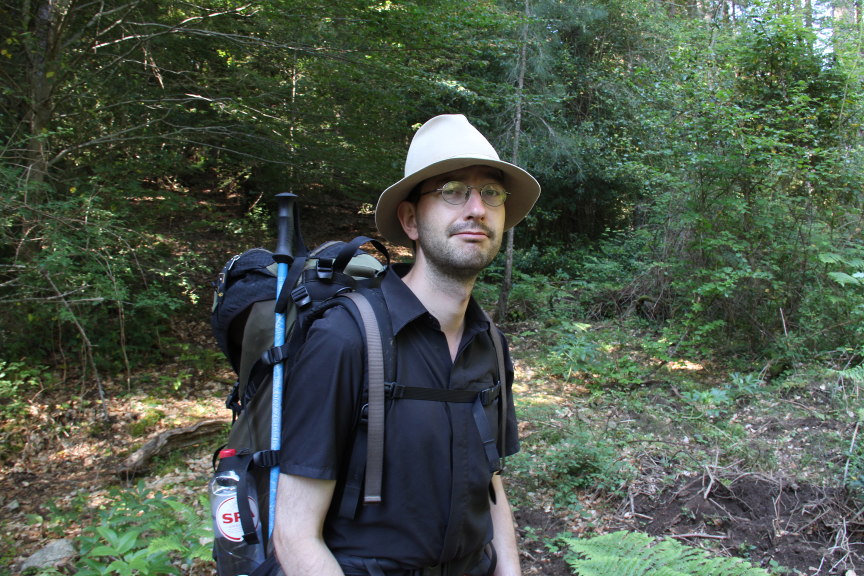Rein van ‘t Veer, geospatial data scientist cloud engineer person
Geospatial data scientist, specialised in geodata/cloud engineering, Kubernetes or otherwise, geospatial machine learning, and Python and Rust application development. Self-employed/freelancer at https://antfield.nl in the Netherlands.
Making software is much more a creative process and rarely a straightforward translation of logic into machine-readable format. This is why I’m not so concerned with developments in AI (yet) as a replacement of human developers. The machines fortunately do not tell you (yet) in which direction to point your company or what to communicate with stakeholders. It can assist, but cannot replace human motivation, which is fueled by emotion. This is the one thing that the rise of the machines lack.
Expertise
- Python developer 7yr+,
- Pypi.org published, Geo and Machine Learning, read on https://arxiv.org/abs/1806.03857
- QGIS plugin and test engineer: see my blog
- Open source geo engineer 15jr+
- Kubernetes cloud engineer, with 3 production cluster deployments (and many, many more development clusters), experience in bare metal, and hosted: Google Kubernetes, Amazon Kubernetes, Digital Ocean Kubernetes
- Kubernetes Argo workflow engineer 2jr+, with contributions to the Argo Helm project
- “Test advocate” 6jr+
- Rust developer 3jr+, with contributions to
- retro-embedded Rust voor de Rust Sega Megadrive
- Rust Kubernetes Operator prototype
Preferences
- Open source where possible
- Dedicated to knowledge transfer: I got here thanks to the help of others!
- Remote or hybride, freelance projects
Projects
“Side project”: tutorial Kubernetes Operators with Argo ecosysteem
28-2-2022
Actually just out of curiosity, but also out of great interest for Argo I looked into how you without the Operator SDK could still fill in a Kubernetes Operator pattern with minimal effort. Kubernetes Operators are generally extensions of the base Kubernetes API, but they can also go to standard resources listen. The bottom line is that with Argo Events and Argo Workflows can build a complete operator, which has the following advantages:
- Simple functionality does not require a custom Docker image, which reduces maintenance burden
- The operator can be implemented in this way with a handful of Kubernetes manifests
- The workings of the operator are much more transparent because they are available for inspection in the Argo user interface, rather than in some logging dump.
Posts
-
A Generative Life Drawing Model
-
The easier way to K8s Operator development using Argo Events
-
A Quality Definition of Done for Python projects
-
A Motorola 68000 (m68k) retro computing project
-
QGIS plugin development
-
SQL as programming language? Better not.
-
Elliptical Fourier analysis
-
Myoware Muscle Sensor Project
-
Tizen web app development using node.js, NPM and WebPack
-
Auto-starting ten Amazon machine learning instances
-
Repeat your deep learning experiments!
-
Splitting Python arrays into equal parts
-
Semantics for Archaeology
-
Queueing machine learning jobs using a build server
-
Machine Learning polygon intersection surface areas
-
Semantics2017 talk
-
My EAA 2017 Talk
-
Geometry coordinate normalization
-
Learning on geospatial gaussians
-
Python and GDAL or PostGIS for data preprocessing?
-
Some data lake stats
-
First full run on data files
-
A task for Geospatial Machine Learning
-
Playing with Keras
-
Stable hashes
-
Fixing
-
rdf2vec on geospatial graphs
-
Deep learning on geospatial data
-
Ingesting!
-
Unicode, dammit!
-
Bugfixes
-
Close encounters with real data
-
Data loading tactics change
-
Research data download completed
-
Big Linked Geodata
-
A PhD Roadmap for my first year as a researcher
-
Linked Data presentation for Utrecht.js
-
Internet-of-Thingsify your Raspberry Pi with JavaScript!
-
Why hash URIs should be banned
-
A generic crowdsourcing API, part 2
-
A generic crowdsourcing API, part 1
-
Crowdsourcing geospatial government data
-
No Half Scrum
-
The Wonderful World of Web Sockets
-
On my favorite open source tools
-
What it means to be a Spatial Semantic Web developer
subscribe via RSS
